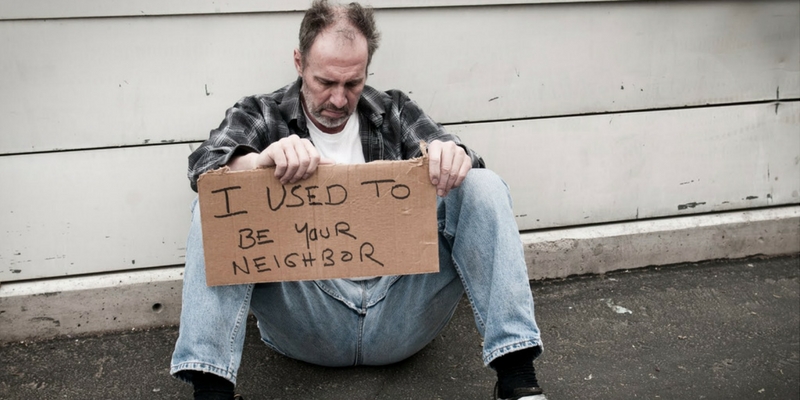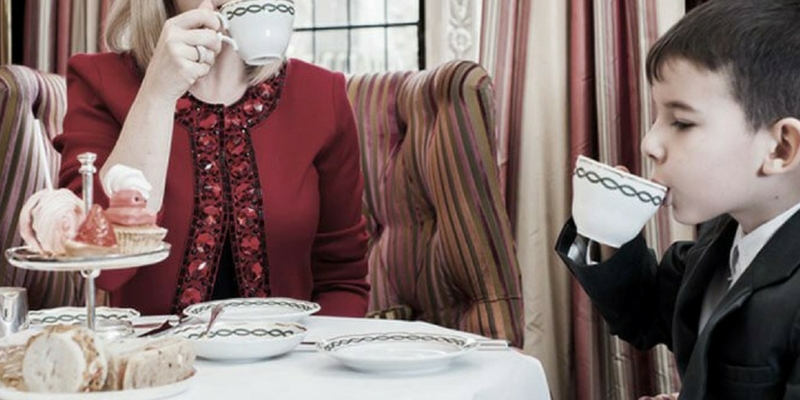Have you ever thought about how you life would be different if you were born to different parents in a different country?
Is The Outcome Of Your Life Like A Lottery?
Some have called it the birth lottery. For example, by being born in the United States, you are entitled to a U.S. passport which gives you access to travel to nearly every country in the world. But if you were born in Palestine, your ability to move about freely is limited to an area about the size of the San Francisco Bay. The winners of this birth lottery is anyone that was born in a “first world” country with access to far more resources than those born in countries whose population primarily serves as an under-appreciated, undervalued, and under-rewarded labor force.
Equally as important in this birth lottery are the particular parents to whom you were born. If your parents were wealthy, college educated, or obtained a higher level of socio-economic status, the experiences you have in life are almost assuredly to be far different from someone born to a single teenage mom without a dime, credential, or accomplishment to her name. Both of these kinds of privilege are plain and easy to see yet very few people seem to actually acknowledge them.
No one earned either of these privileges. The circumstances of our birth were, as far as we know, a completely random occurrence. Yet part of the Western cultural conditioning is to treat everyone as if they had the same chances and opportunities as everyone else.
The thought goes something like this: If you happen to be on welfare or commit any kind of crime, well then that is solely due to the poor decisions you made with your life. You should have chosen better.
We usually lack the concern to ask the tough questions that might help us understand this person’s unique life experiences that may have contributed to their current situation. Why is it so hard to recognize that maybe those other folks did not have the same kind of birth privilege that we may have had?

How often do we inquire about someone's story?
The Cost Of Compliance
Contrary to what many may think about children born to wealthy families, the experience is not as easy as one might imagine it to be from the outside. From the perspective of someone born without access to resources that many wealthy kids may take for granted – things like access to education, job opportunities, a stocked refrigerator – it may seem like wealthy children live a spoiled life where every need is met and whim is catered to. While there can be some truth to it, these privileges do come with a price, and it is this cost that many wealthy kids have to pay that keep them from recognizing their own privilege later on in life.
Let me be clear. I am not saying that if you are born to a wealthy family that this was your experience, or that these expectations are limited to wealthy kids. There are exceptions to the rule, but in general, these are my observations based on my own life experience. Of course, if you were lucky enough to attend the Waldorf school, then this may not apply.
One general difference between kids born to wealthy or socially successful parents and those born to parents who occupy a spot on the bottom rung of the socio-economic ladder are the expectations that are put upon that child to perform. Children of successful parents are usually expected to be successful as well, sometimes even more so than the parents. They might be expected to continue the family business and be groomed from childhood to meet that expectation. They are expected to excel in school, to get a high-paying job in a respectable profession, and to engage in life in ways that their culture expects them to. This means holding your fork a certain way when eating at the dinner table. It means that you dress a certain way depending on the social function. You could never get a nose ring or style your hair like a Mohawk. It means that you always speak in the language of “political correctness,” never saying anything that might embarrass an authority figure, even if it means overlooking an obvious injustice.

Children of successful parents are expected to engage in life in ways that their culture dictates.
The Cost Of Non-Compliance
Failure to comply with these expectations is often treated with the removal of support, access, validation, acceptance, and even love. This leaves the child with the ability to meet their needs but only on condition. That condition is that the child does not explore being their authentic self. Instead of following their own intuition or inherent purpose, many wealthy children must learn the “rules of the road” and follow them to a tee, or face the consequences.
This creates a gigantic, gaping emotional wound that for some goes completely unrealized. They get perfect grades, excel in academia to the highest levels, get good high paying jobs and live the life that is expected of them by their parents and, later on, the institutions that they join, which too carry forth a certain expectation of behavior. Instead of freely being able to explore what the entire world has to offer, many wealthy kids are conditioned through guilt, shame, duty, or obligation to follow a life path that has been well traveled and clearly lit.
Wealthy kids have two choices to a life of expectation and control. They can conform or rebel. If they rebel too wildly, they risk being cut off from the access that comes from their parent’s wealth. But what they gain is something far more valuable – their freedom – freedom to live in whatever way makes them feel good. They also discover something called integrity – values that won’t be compromised just because that’s company policy.
If they conform, they likely will have a much easier path. Doors will be opened for them. Success will most likely be attained. But again, it will come at a cost, and the cost comes in the form of “have tos” – things you feel like you have to do like maintain an image, work over the weekend if the boss expects it, or, in my case, pay respect to your narcissistic father. How many people working in the upper echelons of society actually feel they have the freedom to take a year off from work to learn how to scuba dive? How many people feel the freedom to break into a spur-of-the-moment dance routine in the middle of a shopping plaza?
The dance of freedom
There Is A Wounded Child Inside All Of Us
The reason why many of us are unable to recognize our own privilege is because that privilege cost something sacred to us – a chance to discover our authentic selves and to pursue our own authentic life. Subconsciously, many wealthy kids are actually jealous of poor kids who did not grow up with the same expectations, kids who had the social freedom (albeit not the economic freedom) to explore their true selves. Underneath the lifetime of expectations is a wounded child who is longing for the freedom to leave their corporate job, to get in touch with their higher self, or to explore their inherent connection to the entire Universe.
To those who resonate with this article and feel like they, too, have had to sacrifice something sacred to pursue someone else’s agenda for their life, let us just take a moment to acknowledge the cost of our privilege. Then let us try to heal that wound by giving ourselves what was never given to us – unconditional love and acceptance no matter how you perform or who you decide to be. When we begin to heal that wound, we may be able to look back honestly at whatever privilege we had, whether it is a healthy body, a full pantry, water that comes out of a faucet, millions of dollars, or access to education, and offer empathy instead of judgement to other folks that may not have had the same access of opportunity we did.

It may sound cliche but it is essential if we are going to live in a sustainable society.
The reason why many of us are unable to recognize our own privilege is because that privilege cost something sacred to us – a chance to discover our authentic selves and to pursue our own authentic life.
- Chris Agnos
This article, Why Recognizing Our Own Privilege Can Be So Hard is free and open source. You have permission to republish this article under a Creative Commons license with attribution to Chris Agnos and ChrisAgnos.com. (Just copy and paste this text with links at the bottom of your page.)